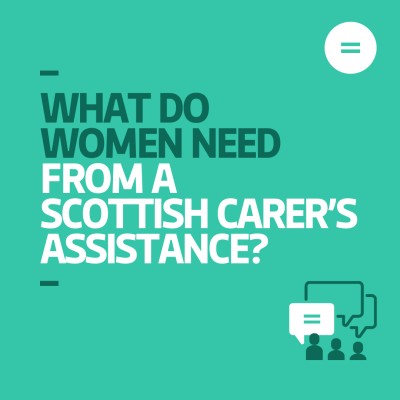Engender blog
Guest Blog: Gender and precarity in the 21st century workplace – universities and beyond
Even before the pandemic, women’s employment was increasingly precarious. Work from our sisters at Close the Gap shows that women are more likely to be in insecure work, on zero hours or temporary contracts, and are two-thirds of workers earning less than the real living wage. Black and minoritised women are overrepresented in precarious work, and are more likely to be on zero hours contracts.
Today on our blog, researchers Dr Lena Wånggren and Dr Cécile Ménard share their work on the gendered impact of job insecurity and precarity, and why we need to make women’s unpaid, unrecognised work visible. Illustrations throughout are by Maria Stoian.
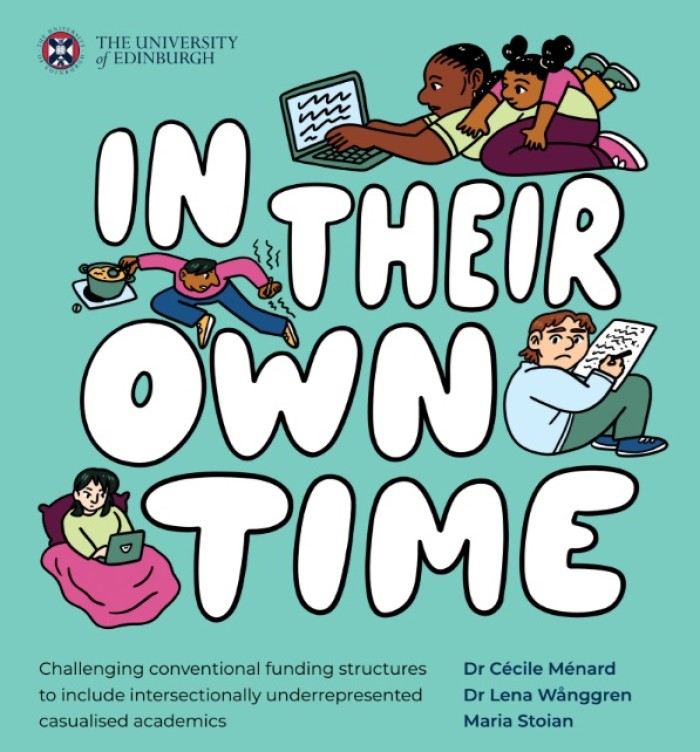
Casualisation – the precarisation of work, in which core business previously done by colleagues in permanent jobs is done on an hourly, fixed-term, sessional, and one-off basis – is a key feature of the 21st-century workplace.
This blog post, written by two long-term insecurely employed feminist researchers at a Scottish university, shares research on job insecurity and inequalities in the UK workplace. Making visible women’s unpaid and invisibilised work and the intersectionally gendered impacts of job insecurity, we highlight what needs to change.
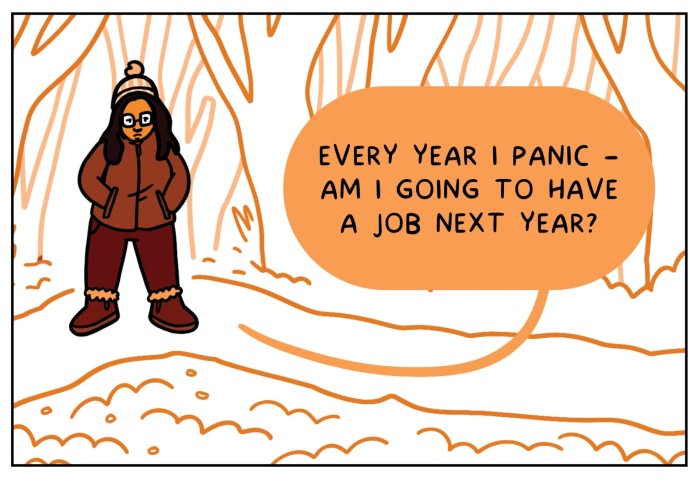
The gendered impact of job security
Job insecurity has become the norm in UK workplaces, especially since the 2008 financial crisis and the austerity measures that followed, when anti-feminist cuts to social infrastructure went hand in hand with anti-worker legislation and policies across sectors. UK Universities, once seen as a prestigious place of privilege, are one of the most casualised (that is to say, reliant on insecure contracts) sectors in the UK: around half of academic staff are employed on insecure contracts, and higher education is the second most casualised sector in the UK after hospitality.
Precarity is not experienced equally. Migrants and racially minoritised persons are more likely to be employed on insecure contracts and, in fact, more likely to be in severely insecure work. While trade unions, feminist researchers and campaign groups have highlighted the detrimental and intersectionally gendered impact of job insecurity, including the exacerbated risk of sexual and racial violence, there is a lack of action among employers and governments to tackle the problem. To address the equalities impact of contractual precarity, we need an intersectional feminist perspective with a focus on workplace justice.
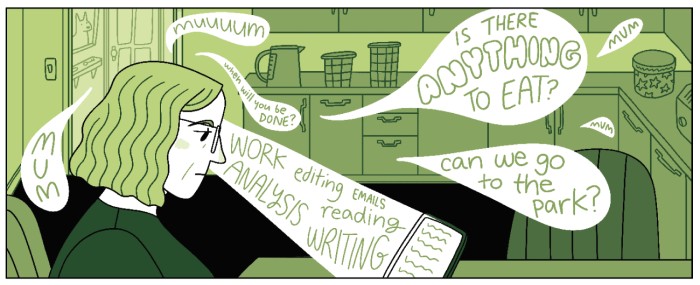
Job security is a workplace issue and a gender equality issue
There are two ways in which we approach gender and precarity in the workplace: from an intersectional feminist framing and from the issue of workplace justice. In the context of our 21st-century precarisation of work across sectors, with gig economy and platform models spreading, and the gendered and intersectional impacts of such an economy, specific problems need tackling. One specific and urgent issue is the financial instability of women in precarious work, with dependency on a partner related to risks of gender-based violence, especially for groups of migrant women who have no recourse to public funds. Family planning is affected when a stable job or living situation is not on the horizon. Job security is both a workplace issue and a gender equality issue.
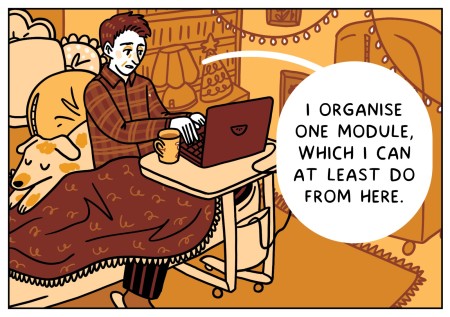 The university sector – still seen by many as a prestigious place of privilege – reproduces the same structural inequalities as the broader society. More than 40% of teaching staff are on hourly or zero-hour contracts that often do not pay enough to live on, with some relying on food banks to get by. While hourly workers are underpaid for the amount of work they are contracted to do, and the work is insecure, researchers are usually on fixed-term contracts, and are encouraged to apply for prestigious awards and grants for their careers in their own time. If they are successful, there is no guarantee of job security; the prestige and cashflow benefit the institution while the worker remains expendable.
The university sector – still seen by many as a prestigious place of privilege – reproduces the same structural inequalities as the broader society. More than 40% of teaching staff are on hourly or zero-hour contracts that often do not pay enough to live on, with some relying on food banks to get by. While hourly workers are underpaid for the amount of work they are contracted to do, and the work is insecure, researchers are usually on fixed-term contracts, and are encouraged to apply for prestigious awards and grants for their careers in their own time. If they are successful, there is no guarantee of job security; the prestige and cashflow benefit the institution while the worker remains expendable.
Women’s unpaid work in universities and beyond
In our current research project, In Their Own Time, we have partnered with our trade union, UCU, to examine a key problem in struggles for gender equality: the undervaluing of women’s work. Unpaid labour has long been at the heart of the feminist struggle. From the Wages for Housework campaign to the work of scholars such as Selma James, Dorothy Smith and Patricia Hill Collins, feminists have shown that defining ‘work’ only as paid labour renders invisible the gendered, racialised labour that keeps institutions—and societies—going. While reproductive work, such as care work, is gendered and racialised, women’s work across society is also underpaid, undervalued, and invisibilised, with the labour market maintaining sexist, racist and ableist structures. This gendered undervaluing of work shows through in expectations of unpaid work and lack of support structures in the academic workplace.
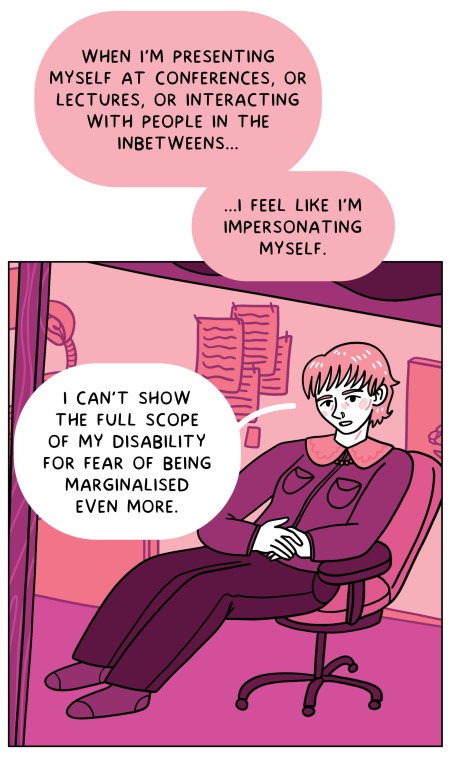 Working with the fantastic feminist illustrator Maria Stoian, the participants in the project tell stories of combining paid and unpaid work, visa applications, health issues, and a range of insecure jobs. Steph, a single mum who juggles housework, childcare, and two insecure jobs, states: ‘Every year I panic – am I going to have a job this year?’ What she calls her ‘own time’ is at night when she does emails for her jobs after her child has gone to bed. Susie, a casualised researcher for 20 years, remarks on the expectation of working unpaid in academia, for example, applying for funding in her own time even when not paid for it: non-academic colleagues think ‘it’s crazy’, but in academia, it’s normalised. She highlights that not everyone can work for free – with childcare responsibilities, she needs flexibility. Alex is a disabled academic whose disability has been made worse by precarity. Another participant, Eimhir, explains that she spends managing her chronic health condition alongside paid work and cannot fit in further unpaid academic work even if this is required to succeed in the university. Olivia, a mum and researcher, keeps her work with her all the time – including marking dissertations by the pool when the kids are at swimming lessons on Saturday morning. Meanwhile, Gwen is a trans academic in precarious part-time jobs: she gives lectures, does research, organises events, and supports her colleagues, all unpaid in her spare time.
Working with the fantastic feminist illustrator Maria Stoian, the participants in the project tell stories of combining paid and unpaid work, visa applications, health issues, and a range of insecure jobs. Steph, a single mum who juggles housework, childcare, and two insecure jobs, states: ‘Every year I panic – am I going to have a job this year?’ What she calls her ‘own time’ is at night when she does emails for her jobs after her child has gone to bed. Susie, a casualised researcher for 20 years, remarks on the expectation of working unpaid in academia, for example, applying for funding in her own time even when not paid for it: non-academic colleagues think ‘it’s crazy’, but in academia, it’s normalised. She highlights that not everyone can work for free – with childcare responsibilities, she needs flexibility. Alex is a disabled academic whose disability has been made worse by precarity. Another participant, Eimhir, explains that she spends managing her chronic health condition alongside paid work and cannot fit in further unpaid academic work even if this is required to succeed in the university. Olivia, a mum and researcher, keeps her work with her all the time – including marking dissertations by the pool when the kids are at swimming lessons on Saturday morning. Meanwhile, Gwen is a trans academic in precarious part-time jobs: she gives lectures, does research, organises events, and supports her colleagues, all unpaid in her spare time.
As seen in our project, the reliance on intersectionally gendered unpaid labour creates further inequalities because it excludes those whose own time is other people’s time – such as those with caring responsibilities, the majority of whom remain women – or those whose own time is recovery time, as is the case for many disabled individuals.
Job security now!
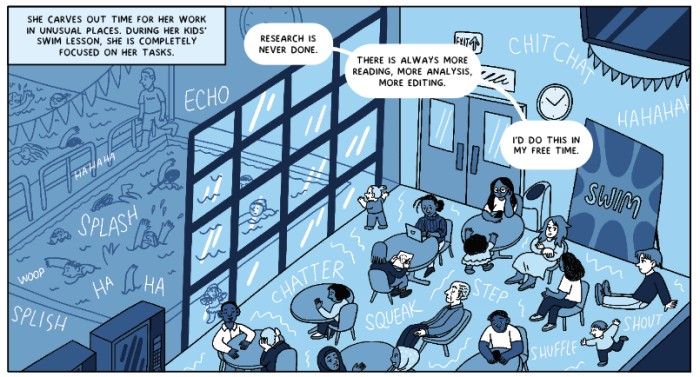
Precarity is everywhere: environmental, geopolitical, and at work. We can make distinct policy changes to address this: we need decent, secure jobs for women and for all - that is key to gender equality. Together with trade unions, workers’ organisations, and feminist organisations, we call for immediate institutional and governmental action on job insecurity, intersectional gender inequality, and an end to the invisibilisation of women’s work. Addressing job insecurity requires more than reforming individual contracts—it demands dismantling the structures that normalise insecure, unpaid labour as inevitable. Such action extends far beyond universities. Across sectors, a renewed feminist politics of labour is urgently needed—one that centres care, builds intersectional solidarity and challenges the exploitation of those whose time has always been devalued.
This project was supported by the UKRI and the British Academy Funding through the Equality, Diversity and Inclusion Caucus (ES/X008444/1)
Recommended viewing: Our Time Is Coming Now (BBC, Selma James & Michael Rabiger, 1970)
Guest posts do not necessarily reflect the views of Engender, and all language used is the author’s own. Bloggers may have received some editorial support from Engender, and may have received a fee from our commissioning pot. We aim for our blog to reflect a range of feminist viewpoints, and offer a commissioning pot to ensure that women do not have to offer their time or words for free.
Interested in writing for the Engender blog? Find out more here.
Why the proposed Scottish Carer's Assistance must do more to value unpaid care
This week marks Carers Week, and it comes after two years which have shown, more clearly than ever, the vital role that unpaid carers play. The Covid-19 pandemic highlighted what half of the population already knew – that women take on the vast majority of unpaid care work, and that without them our society and economy could not function.
The Scottish Government has been consulting on their proposals to replace Carer's Allowance with a Scottish Carer's Assistance, as part of the devolution of some social security payments to Scotland. The provision of unpaid care, and its interactions with social care, are closely interlinked with systemic and harmful gender roles that constrain women’s lives, with women’s access to paid work, leisure time and power remaining heavily constrained by the provision of care and gendered expectations around its value and delivery.
What do women need from a Scottish Carer’s Assistance?
In this post, we're sharing Engender's guide to filling out the Scottish Government's consultation on Carer's Assistance. You can also access this information as a PDF document here.
The Scottish Government is consulting with people in Scotland about a Scottish Carer’s Assistance, which will replace Carer’s Allowance in Scotland.
Care is a key issue of women’s equality:
- Between 60% and 70% of unpaid carers are women.
- Women are the majority of carers providing over 35 hours of care per week.
- Women are 2x as likely to give up paid work to provide care, rising to 4 x more likely for ‘sandwich care’.
Engender have produced this guide to help carers respond to this consultation. You can find out about the Scottish Government’s plans for Carer’s Assistance by watching this video from the events Engender held with carers here, or taking a look at the detailed proposals here.
How to respond to the consultation
The consultation can be filled out online here by May 23rd.
The consultation asks a number of questions about specific elements of the Scottish Government’s proposals around Scottish Carer’s Assistance, and also some more general questions. There is no need to answer every question.
- Question 1 asks about how Scottish Carer’s Assistance should be designed to suit your needs.
- Question 2 asks about how Scottish Carer’s Assistance should link with other support (for example other social security payments).
- Questions 3-42 ask about specific aspects of a carer’s assistance, whether you agree or disagree with the proposals, and why/why not.
- Question 43 gives you space to share any other thoughts you have about the Scottish Carer’s Assistance.
- Questions 44-48 ask about how the Scottish Carer’s Assistance might impact differently on different groups of people.
What should you say?
It’s really important that as many people as possible with experience of providing care respond to the consultation, and that the Scottish Government recognise that care is an issue of women’s equality. Here are some things, in the bullet points below, to keep in mind when you answer the consultation. Keep in mind that you don’t have to share anything you are not comfortable with.
In the ‘About Me’ section of the consultation, you can choose whether your response is published with a name, without a name, or not published at all. If you select ‘Do Not Publish Response’ it will be treated confidentially. They will still take account of your views for their analysis but will not publish your response, quote anything that you have said or list your name.
- It’s helpful if you can share information about your circumstances to ‘tell the story’ of you as a carer – it can help people understand what unpaid care looks and feels like.
- Think about questions like: When did you start caring? Who do you care for? Why did you start caring?
- If you currently receive Carer’s Allowance, what are the good and bad things about it? You might want to think about things like how much you receive, how flexible it is, whether it is easy to access.
- How does caring impact on your life – on your ability to access paid work, on your financial circumstances, on your opportunities for fun?
- Are there any issues that you experience as carer that you feel women experience differently from men? Do you think that caring interacts with other areas of inequality.
Exploring the impact of Covid-19 on women's equality in Scotland
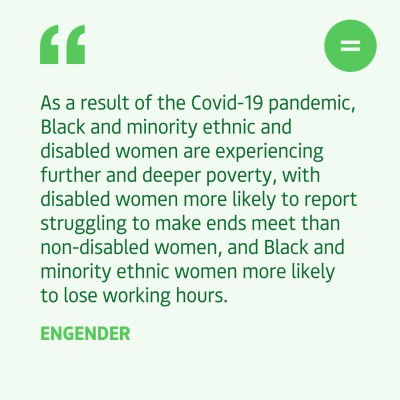
Over the past eighteen months, we’ve seen how the inequalities that existed before Covid-19 have been magnified and intensified by the pandemic. Covid-19 has disproportionately impacted women both at work and at home, with UN Women estimating that the impact for women’s equality could mean a rollback of 25 years of progress on women’s rights.
Women in Scotland face a reduction in paid work both due to increased caring responsibilities and being concentrated in industries hardest hit by the pandemic like hospitality and nursing, which also places women at increased risk of exposure to Covid-19. There is a widening gender gap in unpaid work as women are expected to pick up the slack created by widespread reduction in social care packages, made even more difficult by the persistent inadequacy of social security provision, which has been further compounded by the recent £20 cut in Universal Credit.
Throughout the past year, we’ve joined with organisations across the 4 nations of the UK including Close the Gap, the UK Women’s Budget Group, the Fawcett Society, Women’s Equality Network Wales and the Northern Ireland Women’s Budget Group in a polling project to collect survey data on the impact of Covid-19 on women, funded by the Standard Life Foundation and the Joseph Rowntree Reform Trust. We’ve also worked with Close the Gap to produce joint reports highlighting what this data tells us about the impact of Covid-19 on women in Scotland specifically.
Downloads
 Engender Briefing: Pension Credit Entitlement Changes
From 15 May 2019, new changes will be introduced which will require couples where one partner has reached state pension age and one has not (‘mixed age couples’) to claim universal credit (UC) instead of Pension Credit.
Engender Briefing: Pension Credit Entitlement Changes
From 15 May 2019, new changes will be introduced which will require couples where one partner has reached state pension age and one has not (‘mixed age couples’) to claim universal credit (UC) instead of Pension Credit.
 Engender Parliamentary Briefing: Condemnation of Misogyny, Racism, Harassment and Sexism
Engender welcomes this Scottish Parliament Debate on Condemnation of Misogyny, Racism, Harassment and Sexism and the opportunity to raise awareness of the ways in which women in Scotland’s inequality contributes to gender-based violence.
Engender Parliamentary Briefing: Condemnation of Misogyny, Racism, Harassment and Sexism
Engender welcomes this Scottish Parliament Debate on Condemnation of Misogyny, Racism, Harassment and Sexism and the opportunity to raise awareness of the ways in which women in Scotland’s inequality contributes to gender-based violence.
 Gender Matters in Social Security: Individual Payments of Universal Credit
A paper calling on the Scottish Government to automatically split payments of Universal Credit between couples, once this power is devolved to the Scottish Parliament.
Gender Matters in Social Security: Individual Payments of Universal Credit
A paper calling on the Scottish Government to automatically split payments of Universal Credit between couples, once this power is devolved to the Scottish Parliament.
 Gender Matters Manifesto: Twenty for 2016
This manifesto sets out measures that, with political will, can be taken over the next parliamentary term in pursuit of these goals.
Gender Matters Manifesto: Twenty for 2016
This manifesto sets out measures that, with political will, can be taken over the next parliamentary term in pursuit of these goals.
 Scottish NGO Briefing for UN Special Rapporteur on Violence Against Women
Joint briefing paper for the UN Rapporteur on Violence Against Women.
Scottish NGO Briefing for UN Special Rapporteur on Violence Against Women
Joint briefing paper for the UN Rapporteur on Violence Against Women.

Newsletter
Sign up to receive our newsletter here:
Sign up to our mailing list
Receive key feminist updates direct to your inbox:
